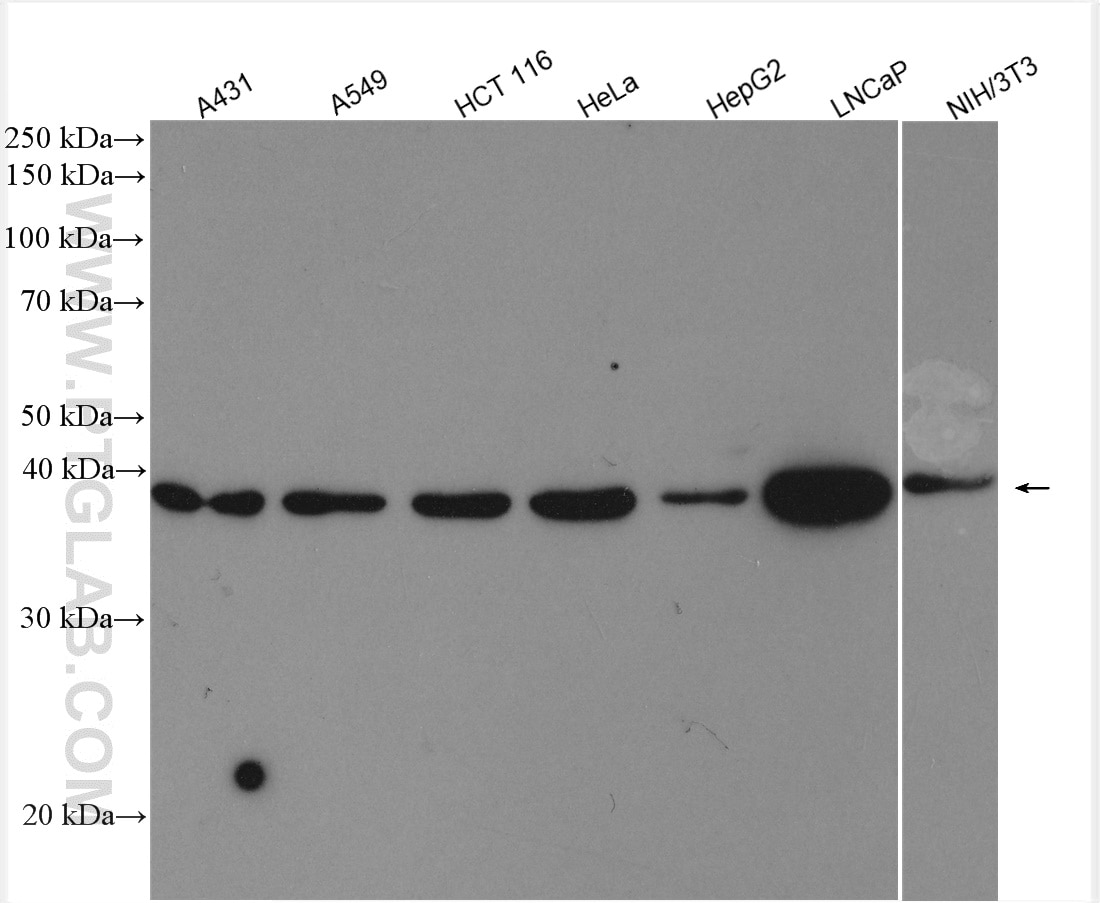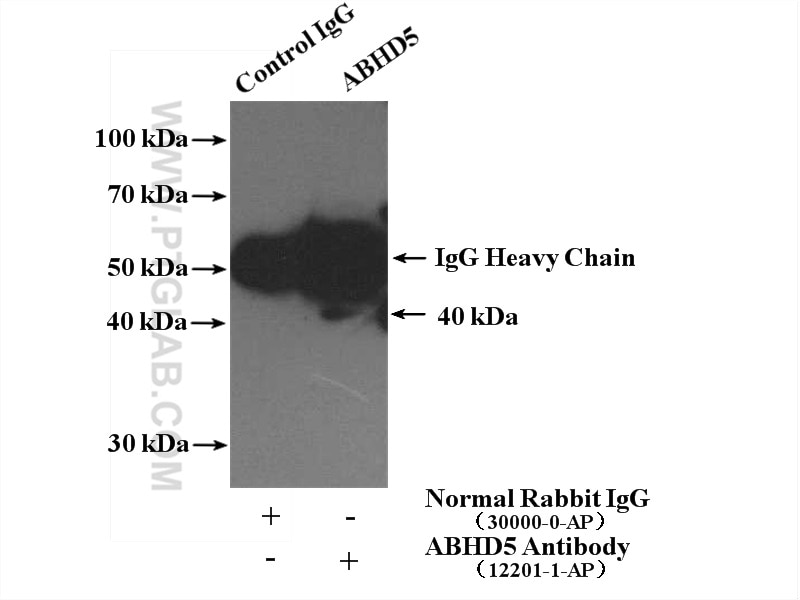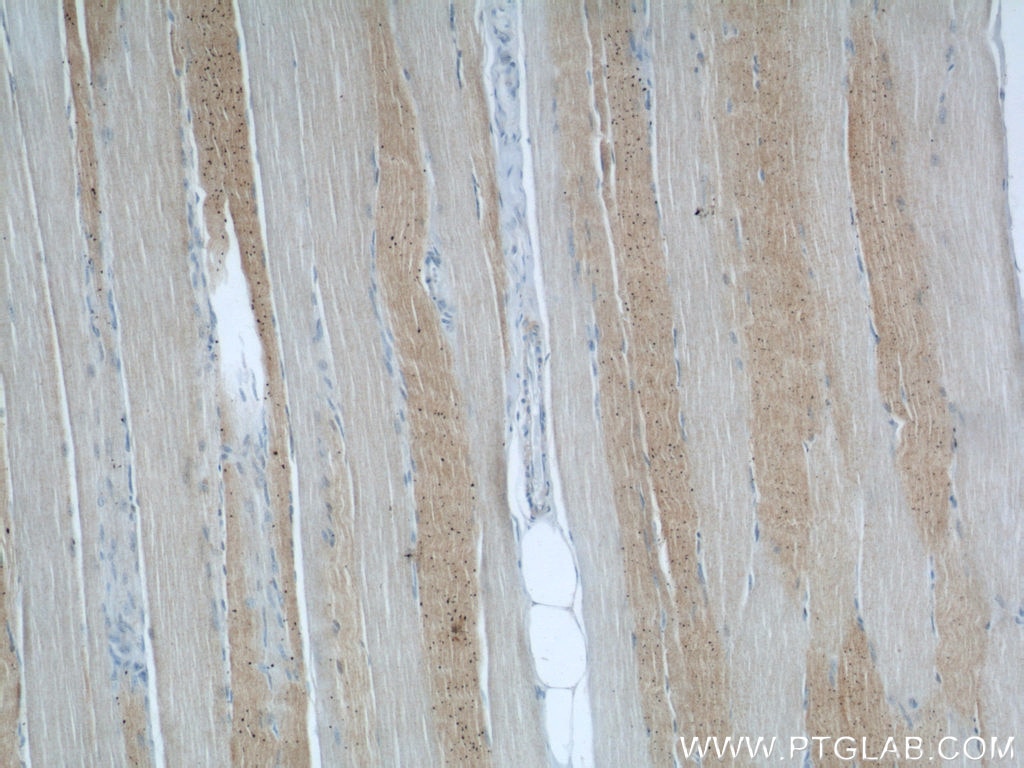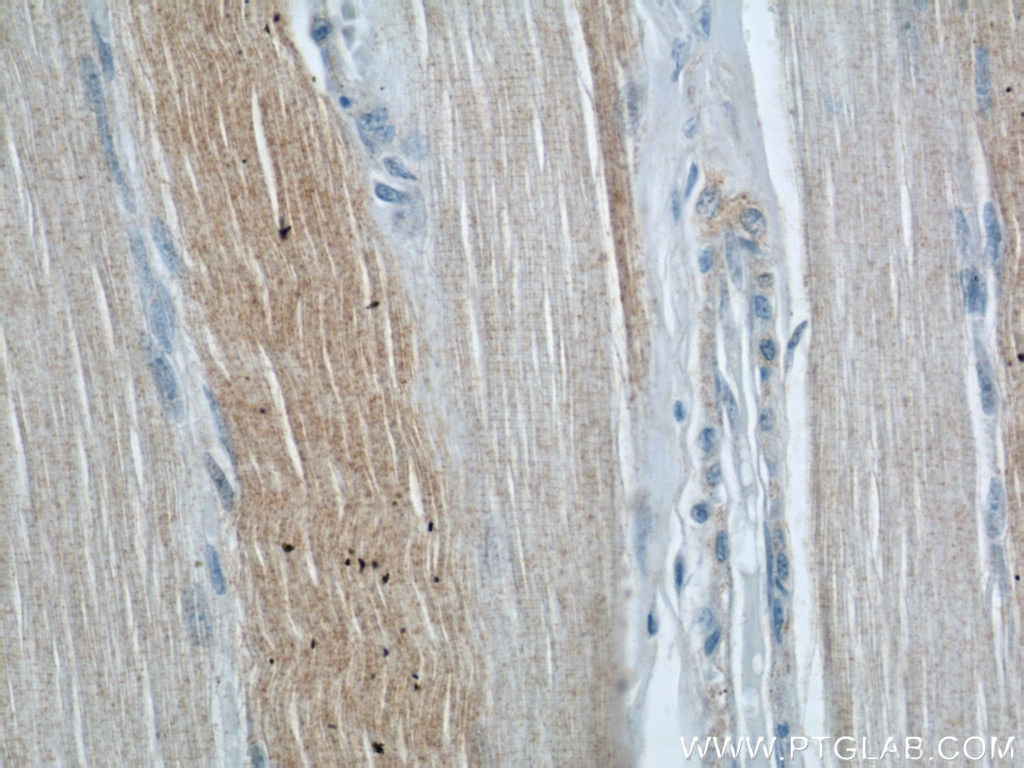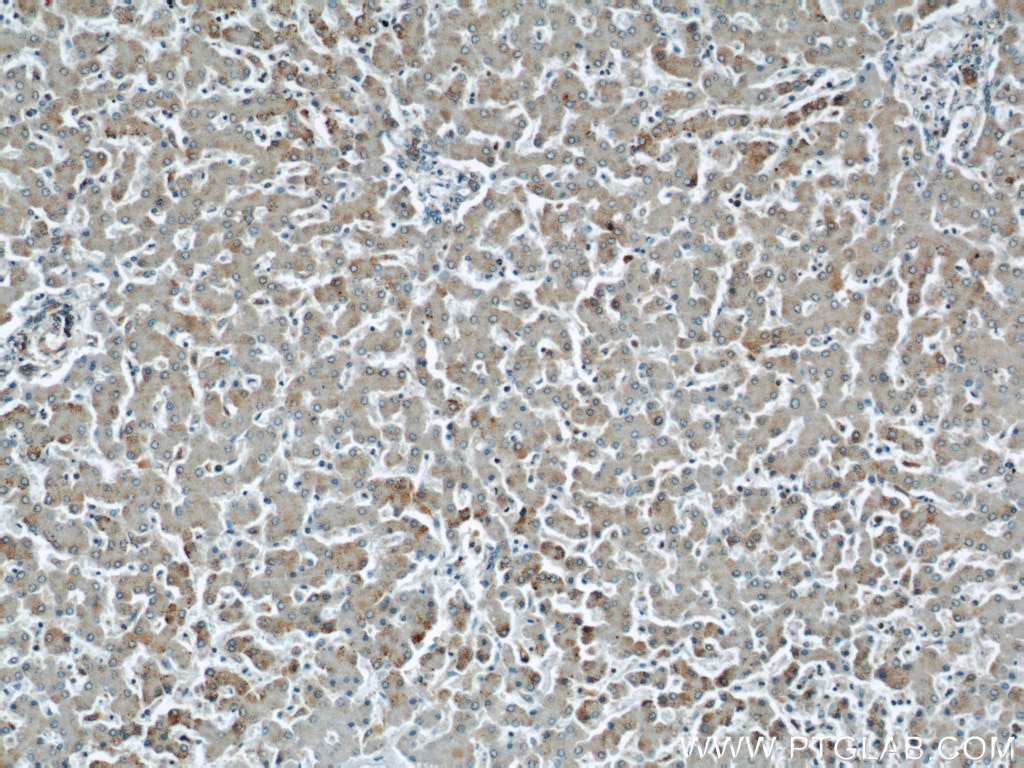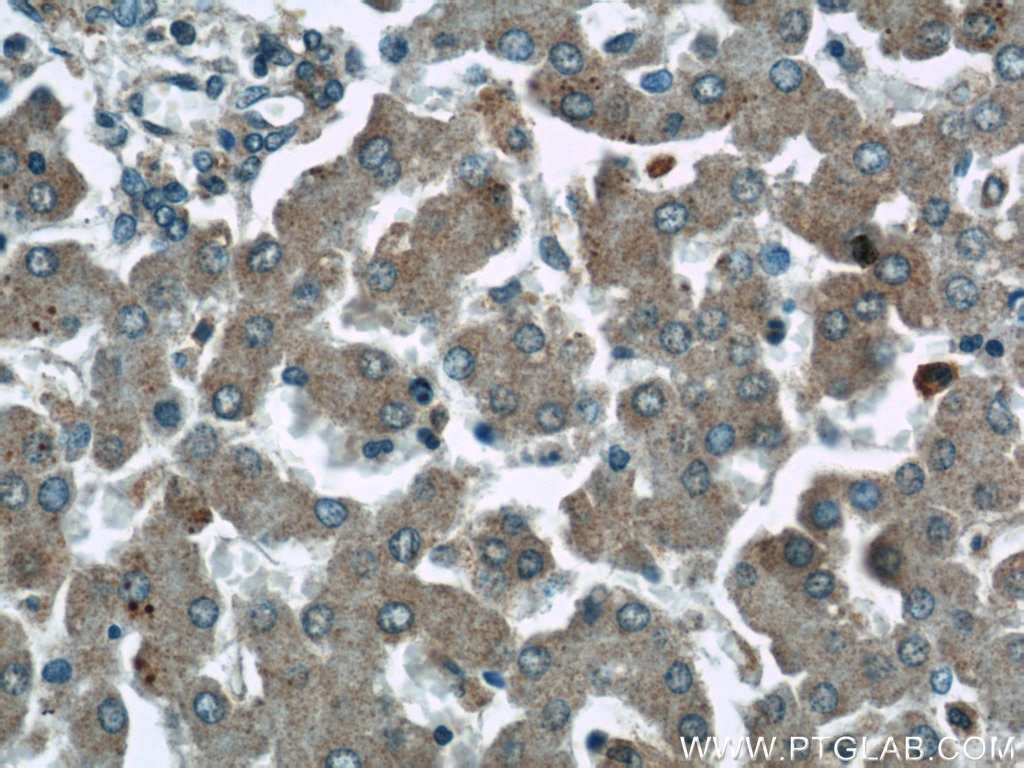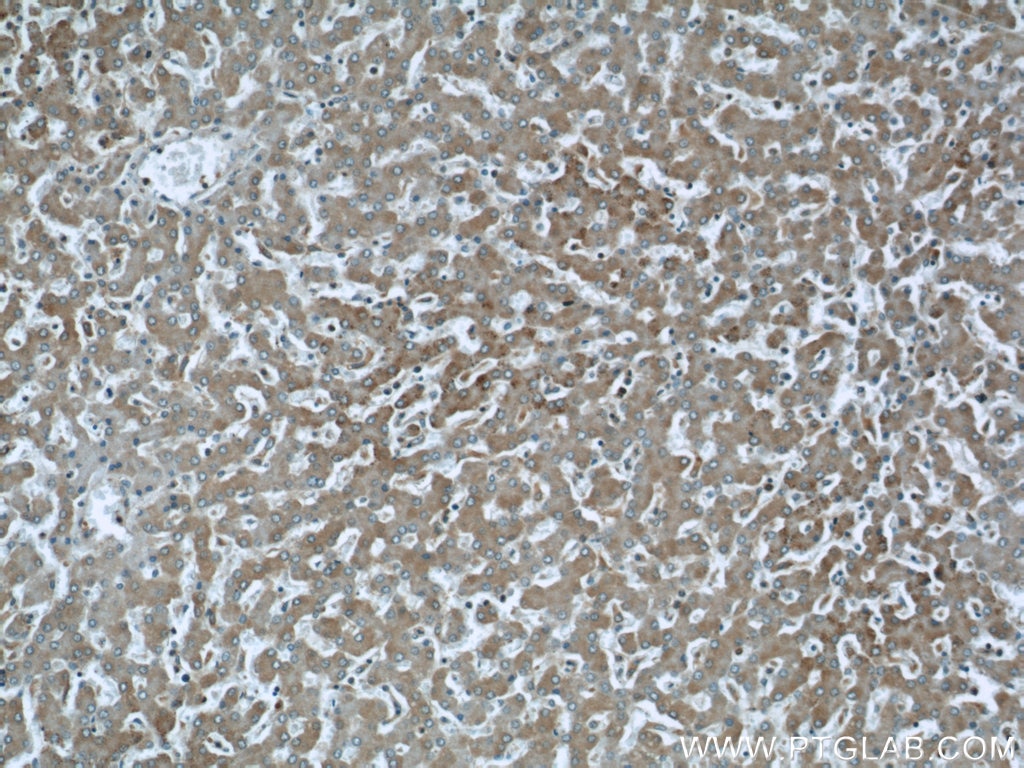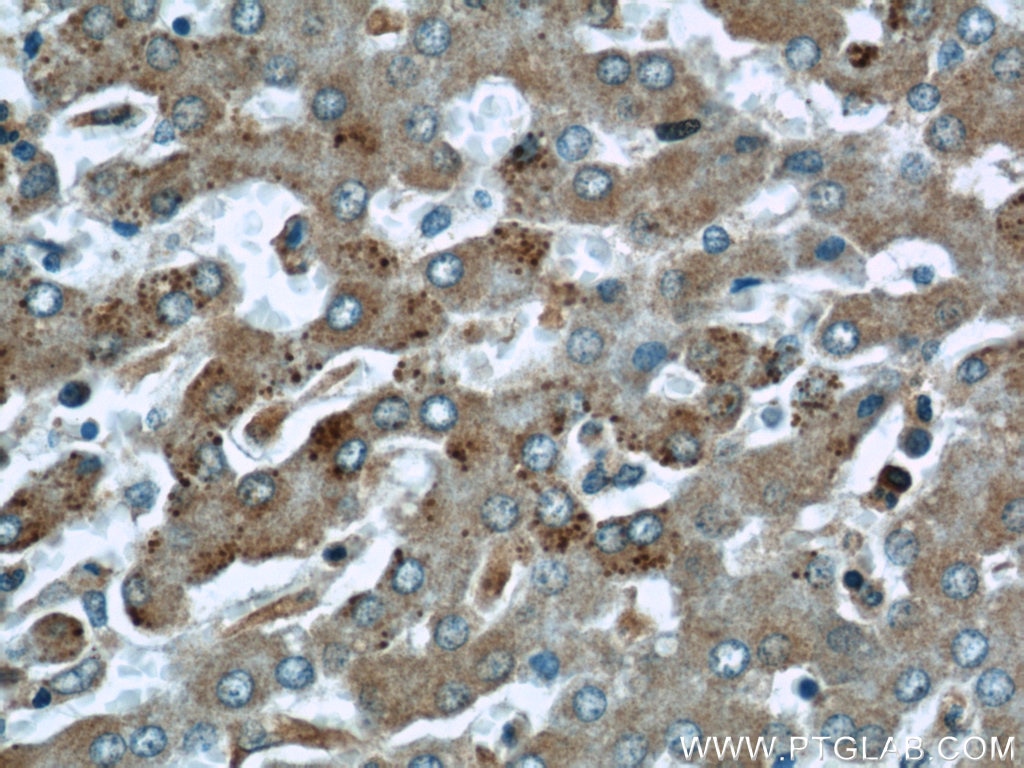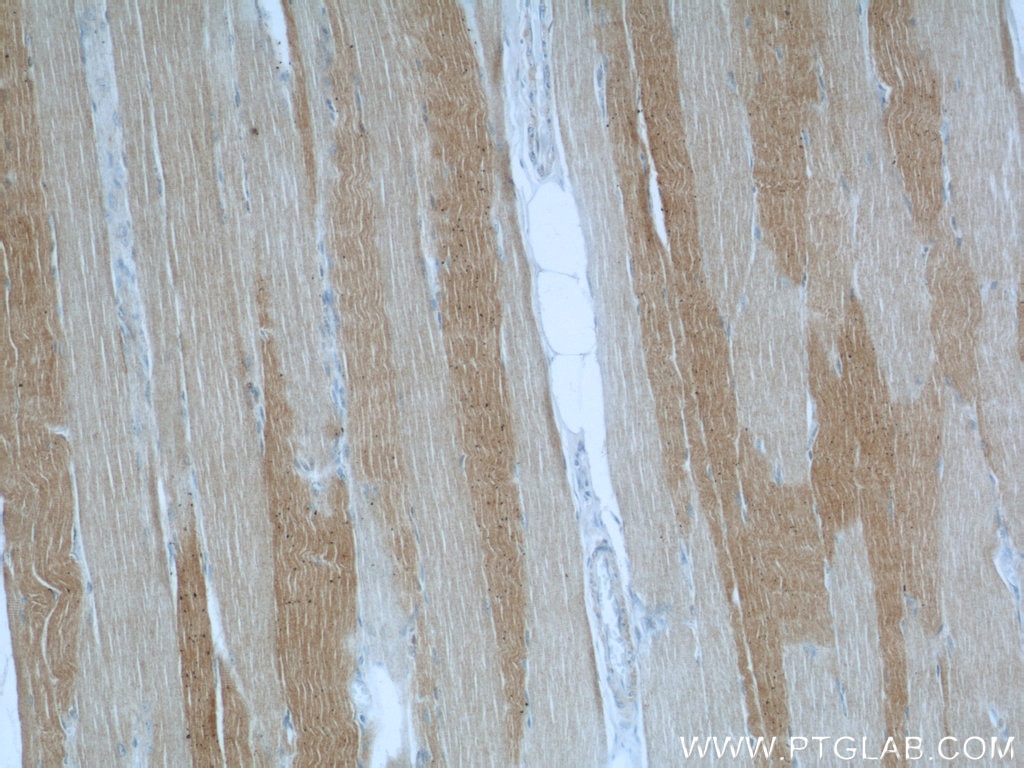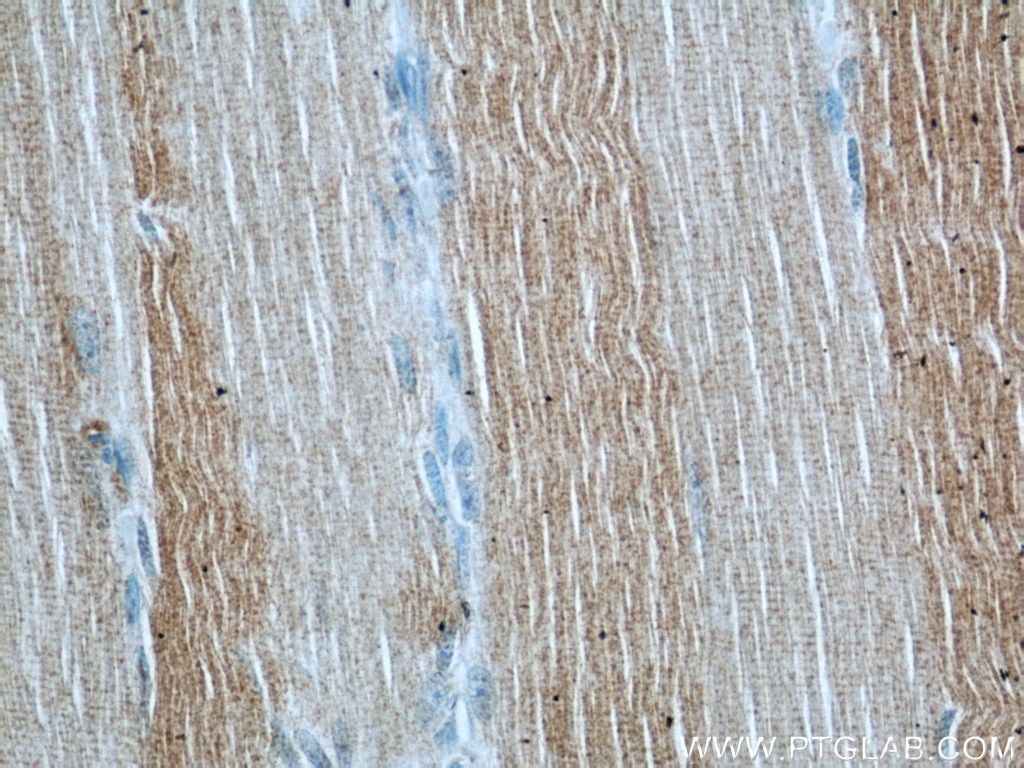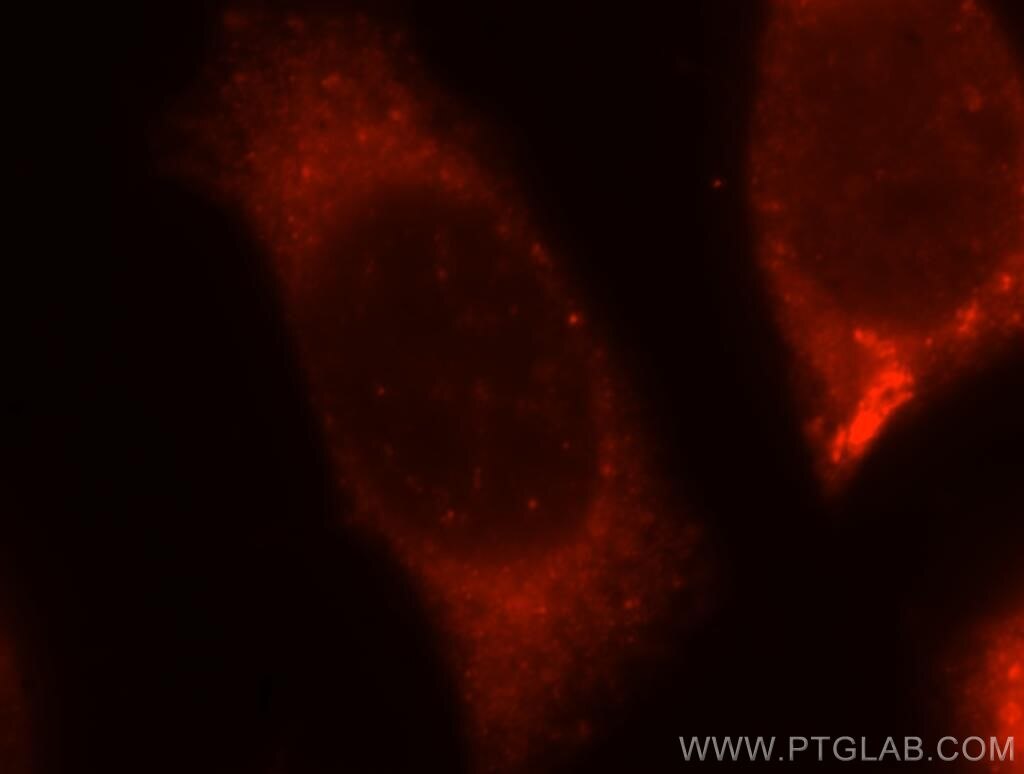- Phare
- Validé par KD/KO
Anticorps Polyclonal de lapin anti-ABHD5
ABHD5 Polyclonal Antibody for WB, IP, IF, IHC, ELISA
Hôte / Isotype
Lapin / IgG
Réactivité testée
Humain, souris et plus (1)
Applications
WB, IHC, IF/ICC, IP, CoIP, ELISA
Conjugaison
Non conjugué
N° de cat : 12201-1-AP
Synonymes
Galerie de données de validation
Applications testées
| Résultats positifs en WB | cellules A431, cellules A549, cellules HCT 116, cellules HeLa, cellules HepG2, cellules LNCaP, cellules NIH/3T3 |
| Résultats positifs en IP | cellules Jurkat |
| Résultats positifs en IHC | tissu de muscle squelettique humain, tissu hépatique humain il est suggéré de démasquer l'antigène avec un tampon de TE buffer pH 9.0; (*) À défaut, 'le démasquage de l'antigène peut être 'effectué avec un tampon citrate pH 6,0. |
| Résultats positifs en IF/ICC | cellules MCF-7 |
Dilution recommandée
| Application | Dilution |
|---|---|
| Western Blot (WB) | WB : 1:1000-1:6000 |
| Immunoprécipitation (IP) | IP : 0.5-4.0 ug for 1.0-3.0 mg of total protein lysate |
| Immunohistochimie (IHC) | IHC : 1:20-1:200 |
| Immunofluorescence (IF)/ICC | IF/ICC : 1:10-1:100 |
| It is recommended that this reagent should be titrated in each testing system to obtain optimal results. | |
| Sample-dependent, check data in validation data gallery | |
Applications publiées
| KD/KO | See 1 publications below |
| WB | See 24 publications below |
| IF | See 3 publications below |
| IP | See 2 publications below |
| CoIP | See 1 publications below |
Informations sur le produit
12201-1-AP cible ABHD5 dans les applications de WB, IHC, IF/ICC, IP, CoIP, ELISA et montre une réactivité avec des échantillons Humain, souris
| Réactivité | Humain, souris |
| Réactivité citée | Humain, porc, souris |
| Hôte / Isotype | Lapin / IgG |
| Clonalité | Polyclonal |
| Type | Anticorps |
| Immunogène | ABHD5 Protéine recombinante Ag2840 |
| Nom complet | abhydrolase domain containing 5 |
| Masse moléculaire calculée | 349 aa, 39 kDa |
| Poids moléculaire observé | 39 kDa |
| Numéro d’acquisition GenBank | BC021958 |
| Symbole du gène | ABHD5 |
| Identification du gène (NCBI) | 51099 |
| Conjugaison | Non conjugué |
| Forme | Liquide |
| Méthode de purification | Purification par affinité contre l'antigène |
| Tampon de stockage | PBS avec azoture de sodium à 0,02 % et glycérol à 50 % pH 7,3 |
| Conditions de stockage | Stocker à -20°C. Stable pendant un an après l'expédition. L'aliquotage n'est pas nécessaire pour le stockage à -20oC Les 20ul contiennent 0,1% de BSA. |
Informations générales
ABHD5, also named as NCIE2 and CGI-58, belongs to the peptidase S33 family. ABHD4/ABHD5 subfamily. It is a Lysophosphatidic acid acyltransferase which functions in phosphatidic acid biosynthesis. ABHD5 may regulate the cellular storage of triacylglycerol through activation of the phospholipase PNPLA2. It is involved in keratinocyte differentiation. ABHD5 is an evolutionarily conserved protein that acts as a potent activator of Atgl. Abhd5 is expressed in several tissues that lack Plin , raising the possibility that this co-activator might interact with additional PAT proteins. Abhd5 and Mldp are highly colocalized on individual lipid droplets.(PMID:19064991) Defects in ABHD5 are the cause of Chanarin-Dorfman syndrome (CDS).
Protocole
| Product Specific Protocols | |
|---|---|
| WB protocol for ABHD5 antibody 12201-1-AP | Download protocol |
| IHC protocol for ABHD5 antibody 12201-1-AP | Download protocol |
| IF protocol for ABHD5 antibody 12201-1-AP | Download protocol |
| IP protocol for ABHD5 antibody 12201-1-AP | Download protocol |
| Standard Protocols | |
|---|---|
| Click here to view our Standard Protocols |
Publications
| Species | Application | Title |
|---|---|---|
Nat Commun O-GlcNAc transferase inhibits visceral fat lipolysis and promotes diet-induced obesity. | ||
Cell Death Differ Plin2-mediated lipid droplet mobilization accelerates exit from pluripotency by lipidomic remodeling and histone acetylation. | ||
Proc Natl Acad Sci U S A Spatial regulation of UBXD8 and p97/VCP controls ATGL-mediated lipid droplet turnover. | ||
Proc Natl Acad Sci U S A Perilipins 2 and 3 lack a carboxy-terminal domain present in perilipin 1 involved in sequestering ABHD5 and suppressing basal lipolysis. | ||
J Cell Biol ORP5 localizes to ER-lipid droplet contacts and regulates the level of PI(4)P on lipid droplets. | ||
Elife Inhibition of intracellular lipolysis promotes human cancer cell adaptation to hypoxia. |
